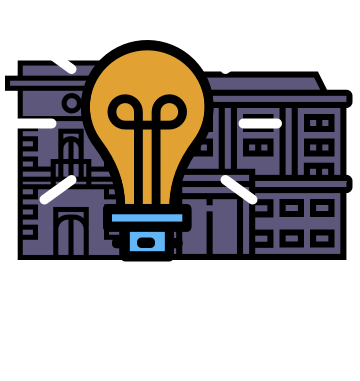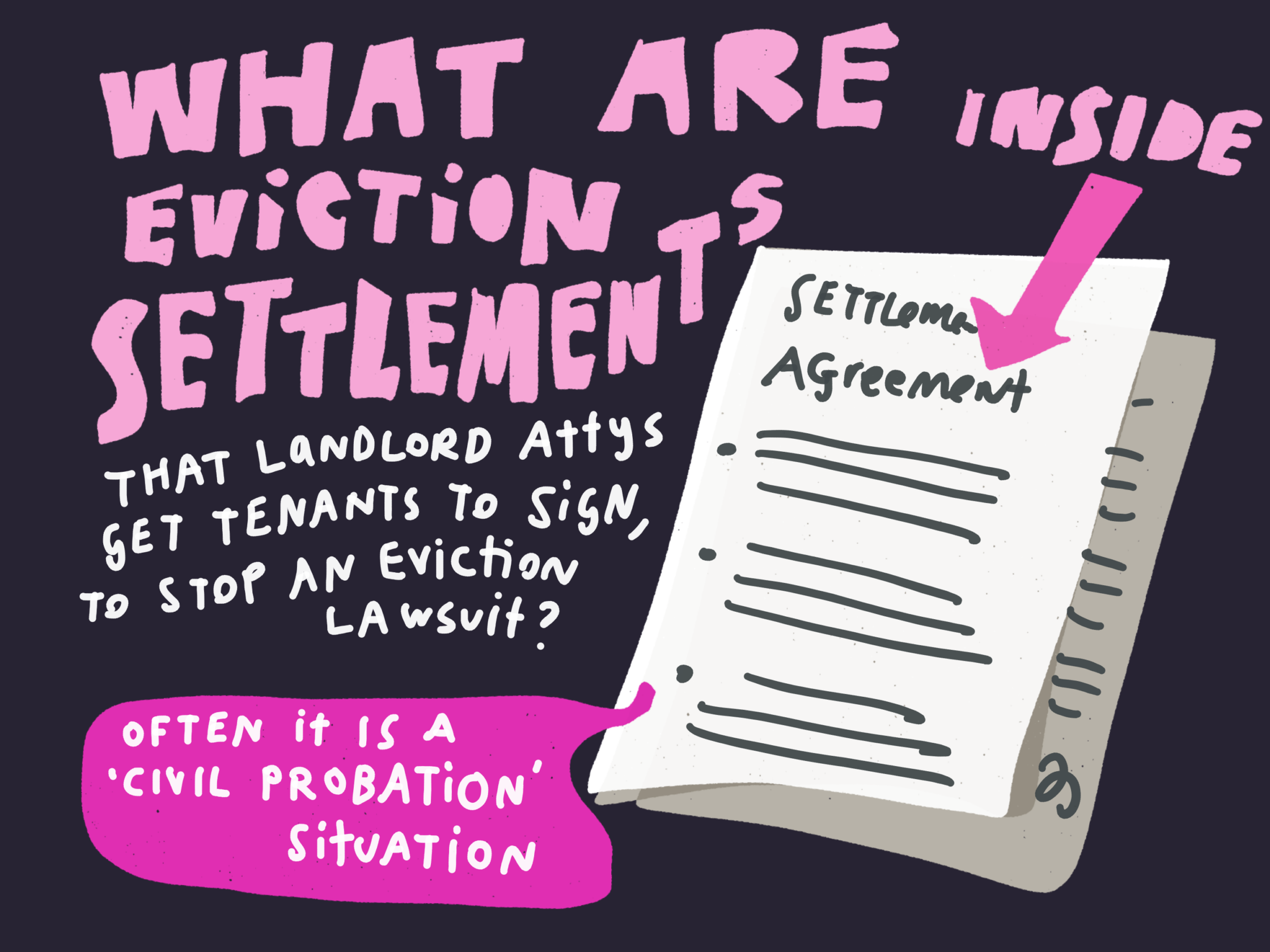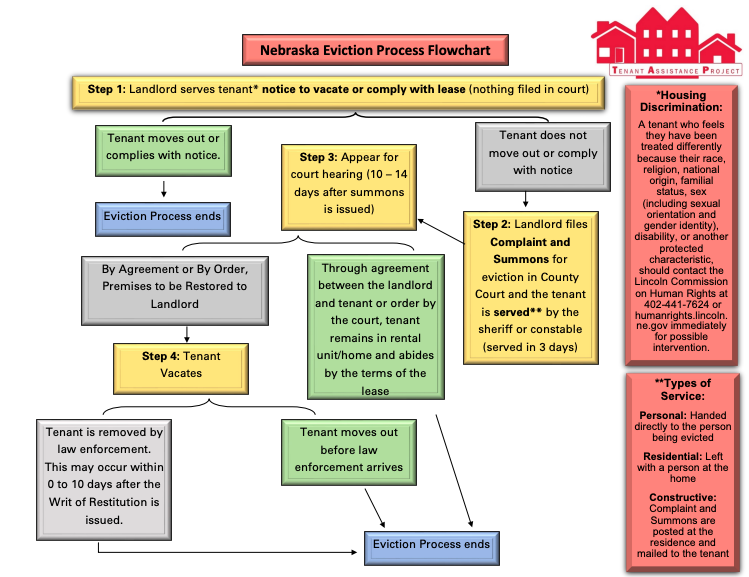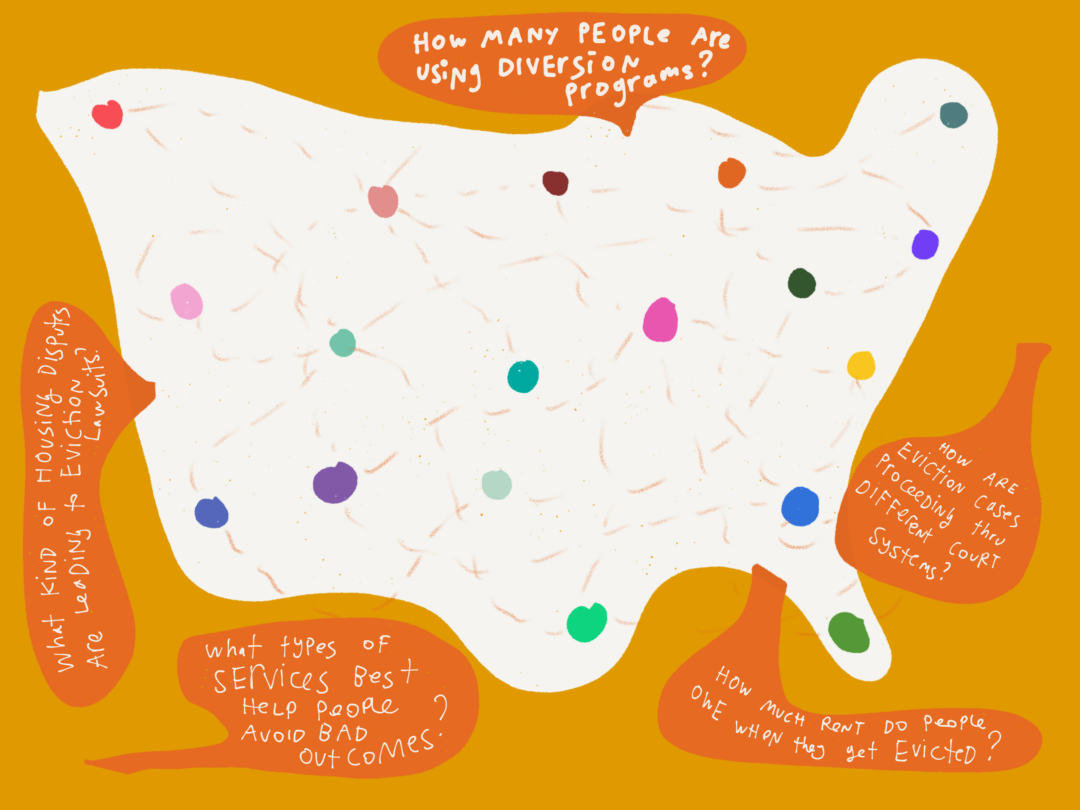Professor Nicole Summers has spotlighted the phenomenon that arises out of housing court settlements: “civil probation”.
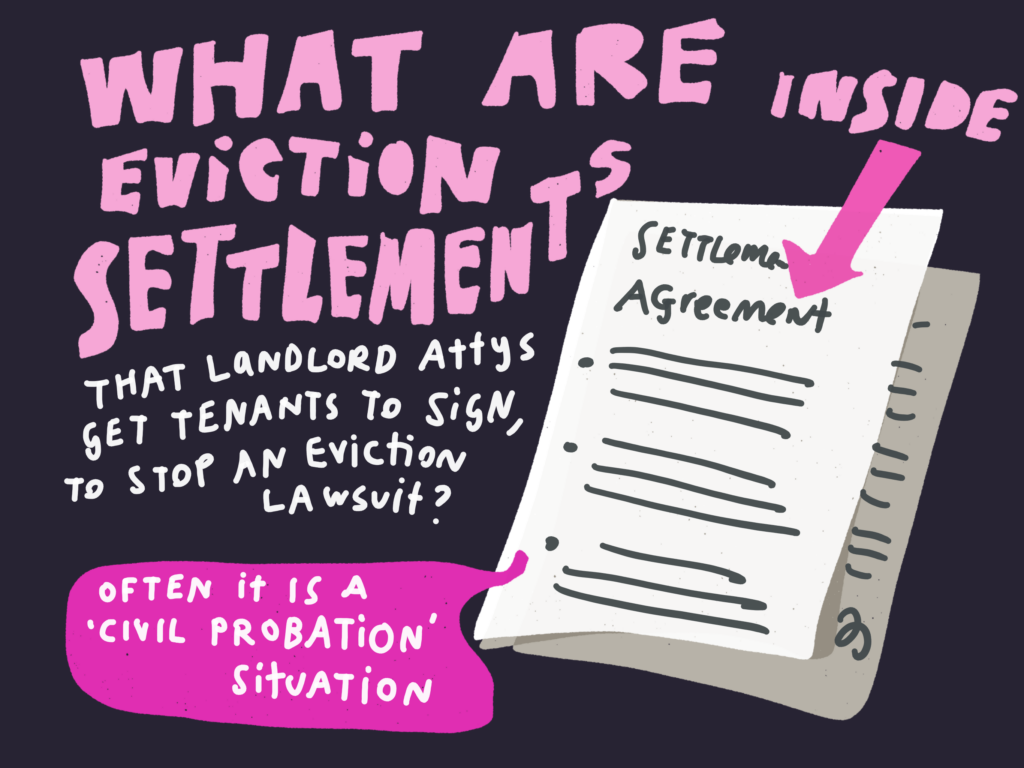
Many eviction cases end in settlements as opposed to court orders. Summers has been studying what is inside these settlements, and has found that many of them contain terms that essentially put the tenant on probation. Even if the settlement lets them stay in their home, if they violate any of the conditions (or the landlord decides they have) set out in the settlement agreement — then the landlord can have them forcibly removed with the assistance of law enforcement without any court process.
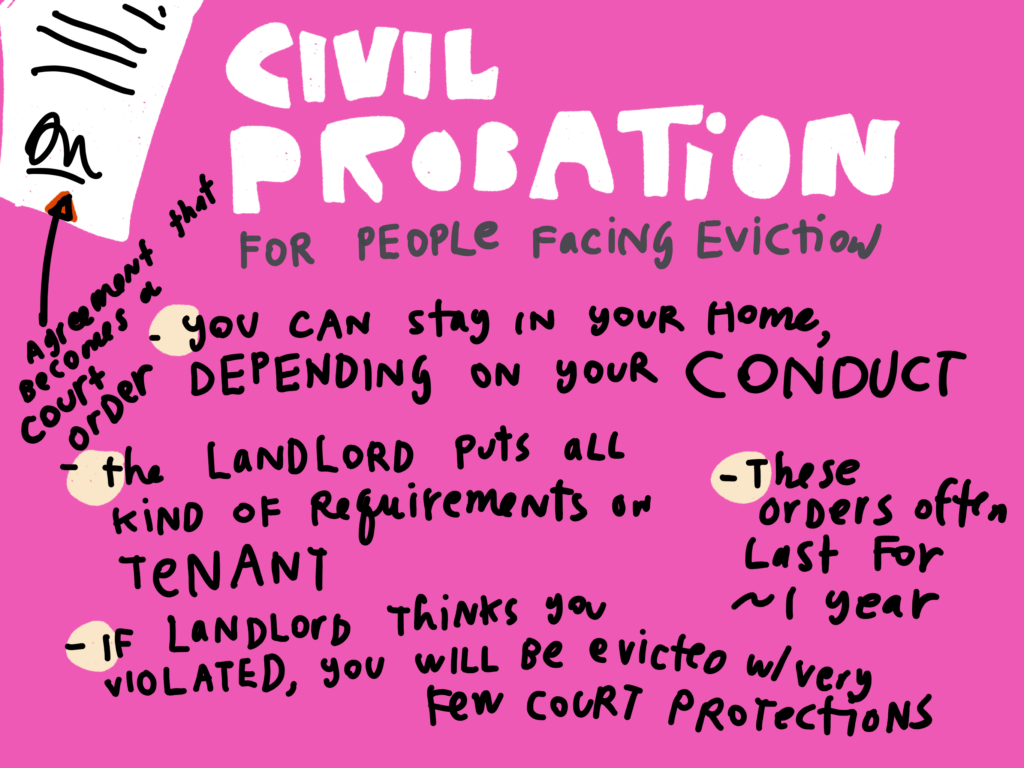
Read more about Summer’s study and findings in a Boston-area housing court. She finds it’s particularly used by sophisticated landlords, not mom-and-pop ones.
What services, tech, and policies could address this?
- Courts might offer a model settlement form, that have terms that do not lead to civil probation.
- Attorney generals’ offices might screen settlements for abusive terms, that then might lead to invalidation of these settlement agreements.
- Service providers like lawyers, navigators, or justice professionals might screen all proposed settlements for these terms before the court accepts them.
